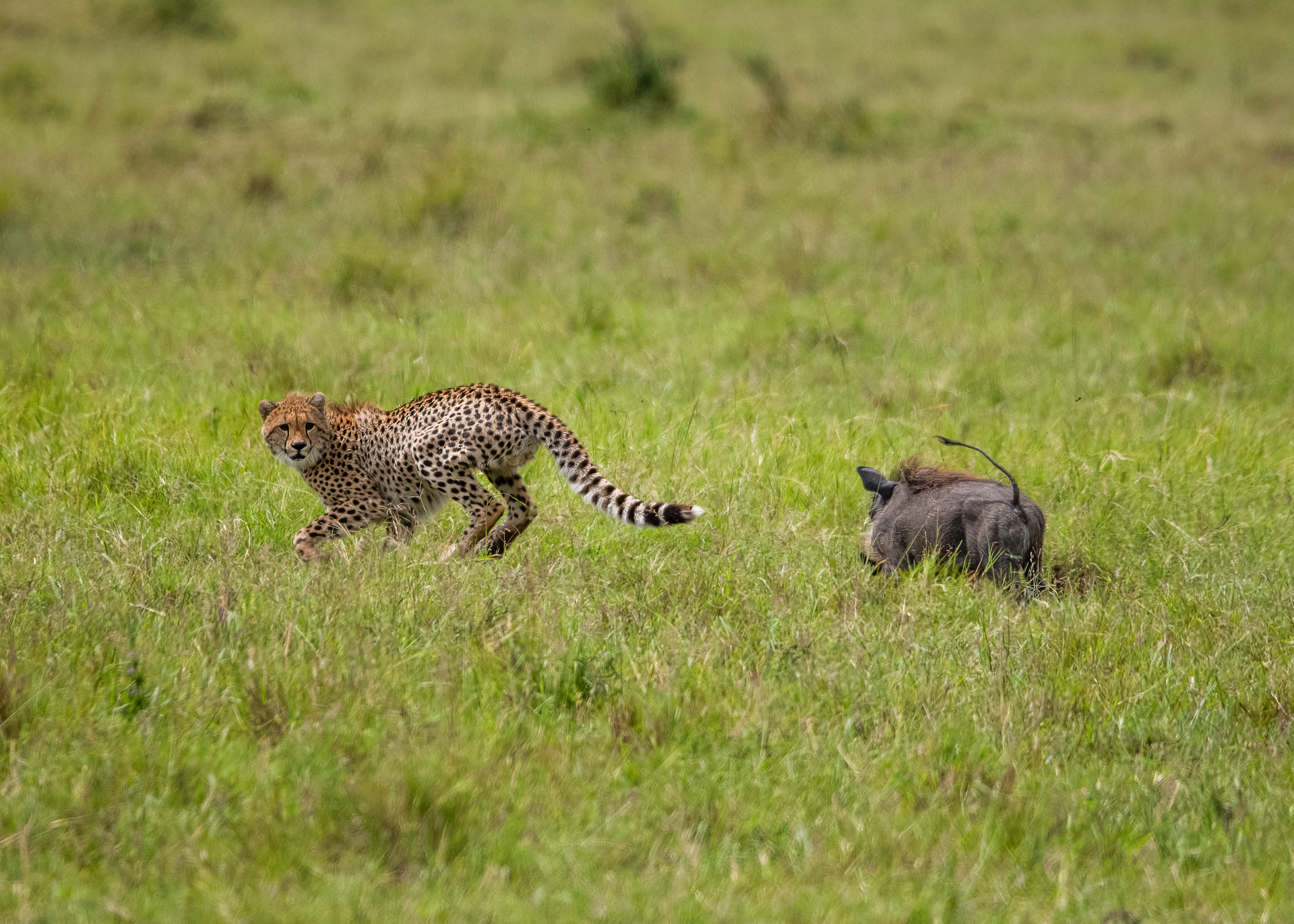
Months ago, we witnessed the intrusion of a dominant male lion, dubbed 'The Killer,' into the Bila Shaka Boys' territory. Tragically, he proceeded to eliminate cubs fathered by the Bila Shaka males. Since then, we have observed him mating with the Angama Lioness in an attempt to spread his own genes within this now volatile territory.
It is highly likely that she is currently pregnant, carrying the offspring of 'The Killer'. The lioness has been spotted on several occasions catching a nap up in a tree, her belly visibly swollen.
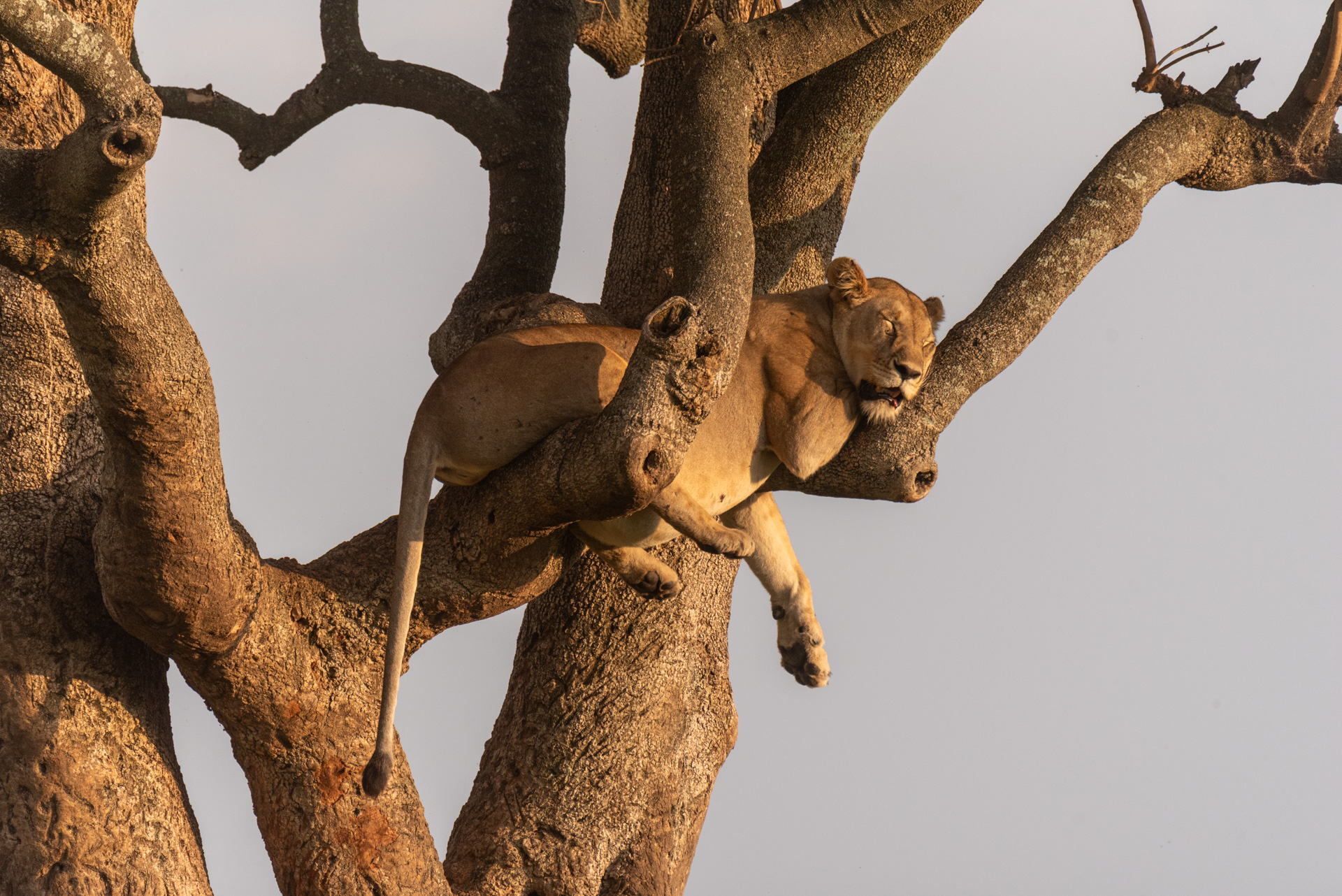
When it comes to territories between lions, the dynamics are often dramatic, thrilling and unpredictable. It's not clear whether the Bila Shaka Boys will be reclaiming their territory from 'The Killer', and how they will react if and when the Angama Lioness gives birth to her new litter. We can only wait in anticipation for the events to unfold.
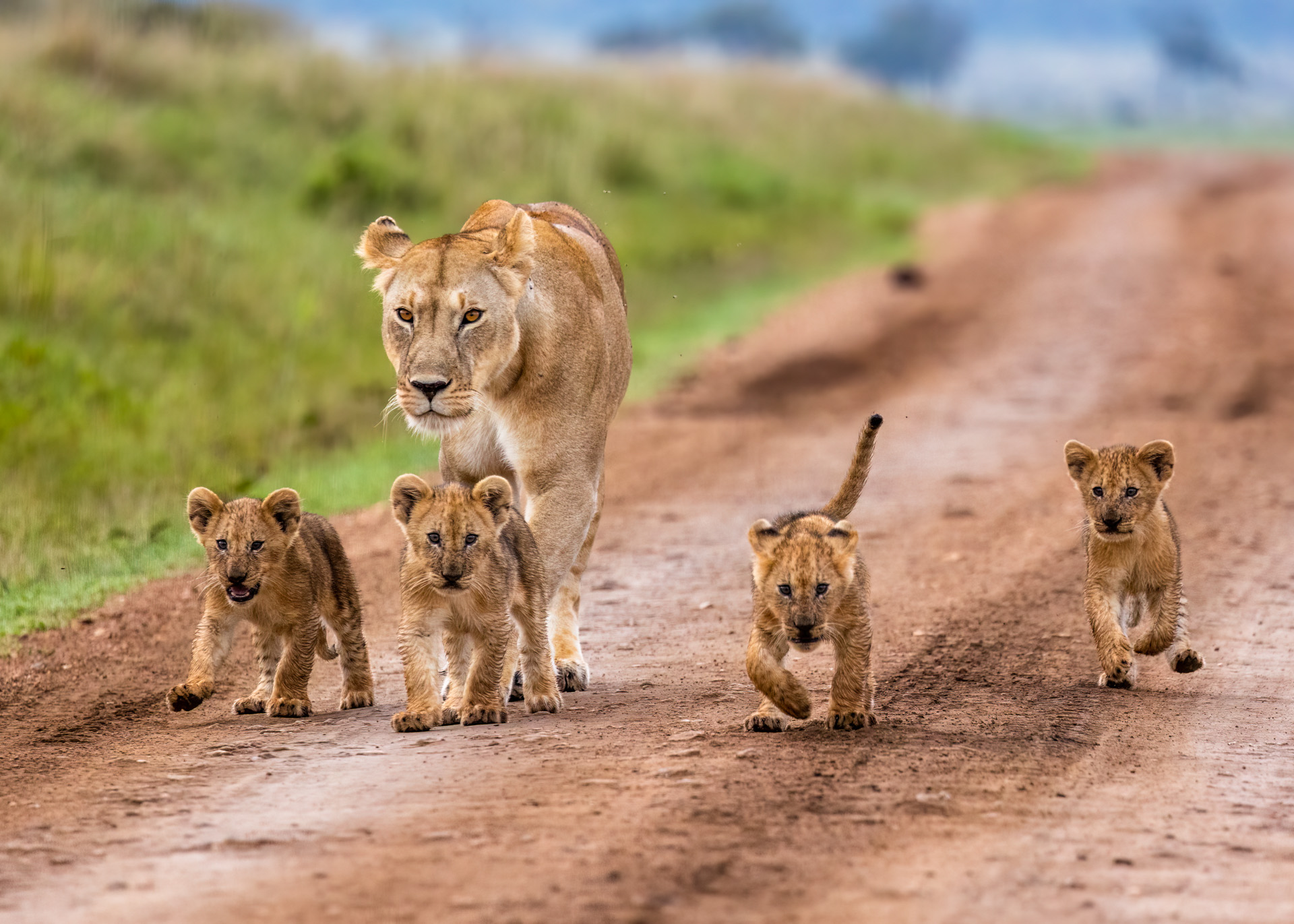
The wild antics of the young Egyptian Pride males added a different element to this week's activities in The Mara. It's embarrassing enough to overindulge when eating with others, imagine that scenario caught on camera for the world to witness. These aspiring hunters may have mastered the art of pursuing formidable game, but they still have a thing or two to learn about controlling themselves. Robert witnessed a comical moment as one of the males was seen trying to throw up after having a little too much buffalo.

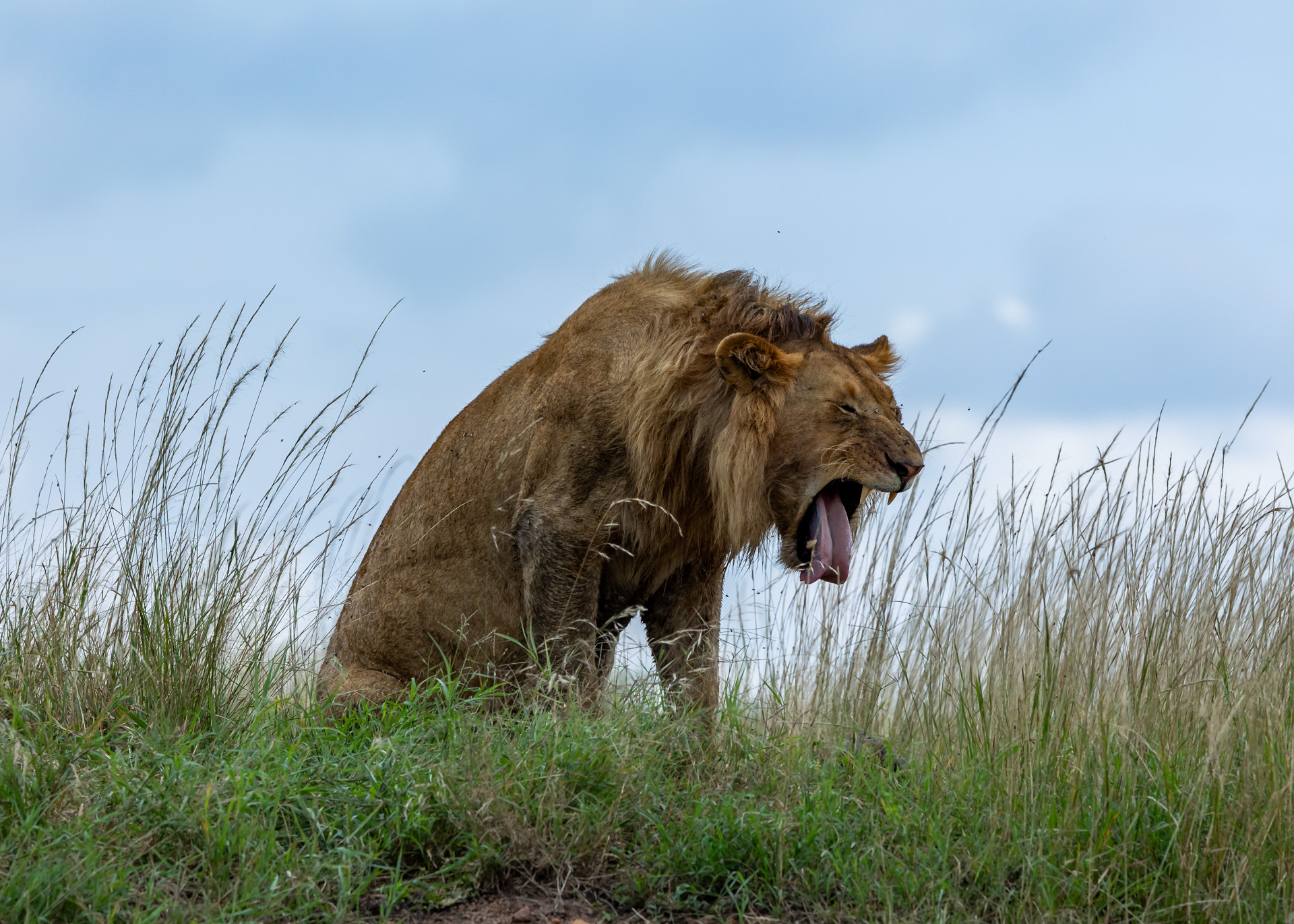
We witnessed some other interesting behaviour as we watched a giraffe bull displaying mating tactics. Giraffes have a polygamous mating system, and male giraffes do not have a specific breeding season or go through a heat cycle. Instead, they are typically ready to mate and actively seek out females for reproduction throughout the year.
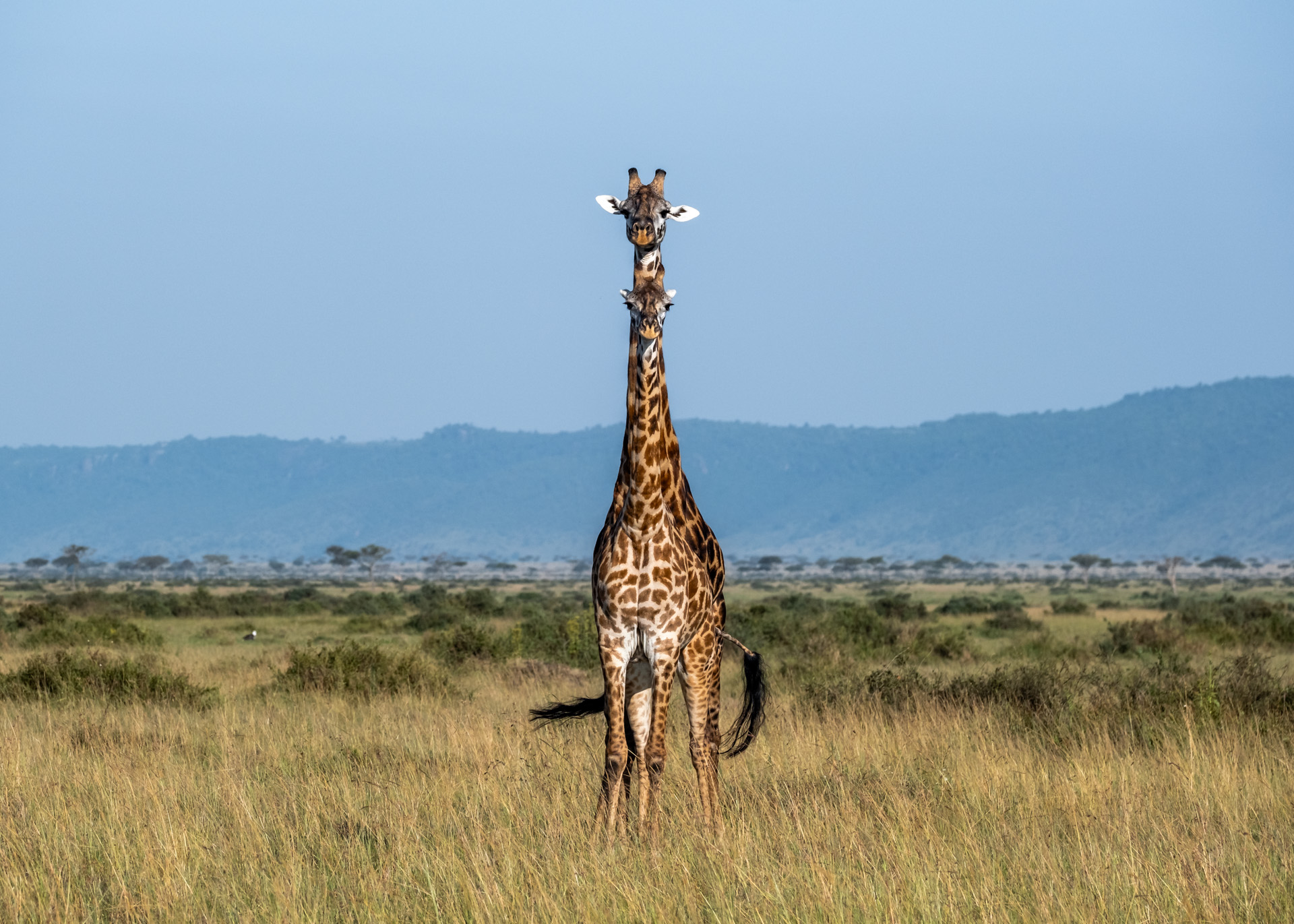
Bulls determine their mating readiness by assessing the urine of females, referred to as cows. A bull will approach a cow and sample her urine to determine whether she is fertile and ready to mate. Once he identifies a receptive female, he initiates the courtship process. This typically involves following the female and nuzzling her hindquarters.
Courtship also involves showing dominance over other males in an engagement called 'necking'. Two male giraffes swing their necks and heads at each other, with the winner earning the right to mate with the female.
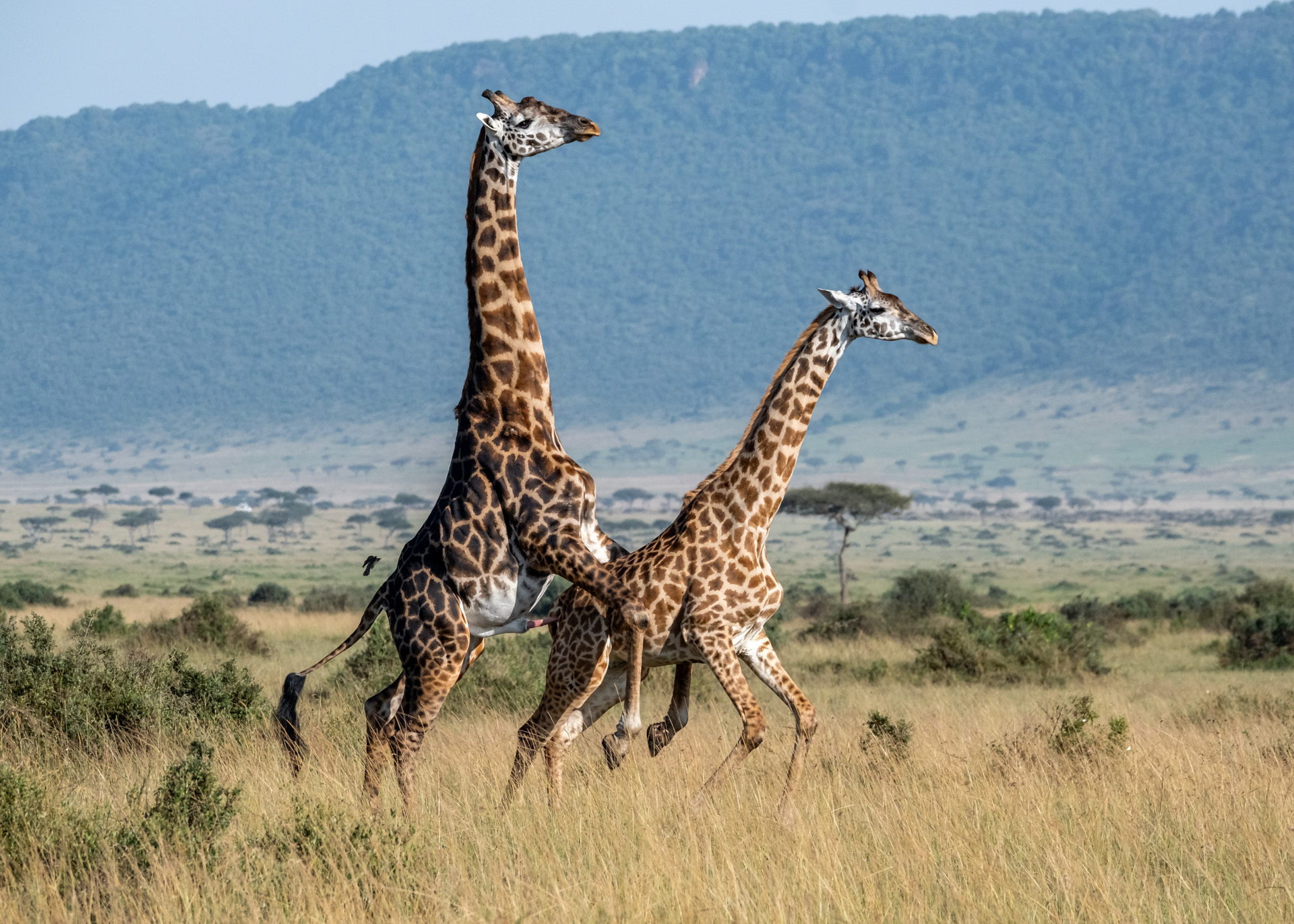
The Triangle's ecosystem harbours one of the largest bird diversities in Africa. With an abundance of sustenance, it becomes a wonderful playground for some of the most impressive raptors. If you look closely while driving down into the Triangle from Angama, you are likely to spot the long-crested eagle perched high up on one of the Balanite trees. These eagles spend a significant amount of time perched high in trees as it provides them with a better vantage point to observe their prey and prepare for their usually highly successful hunts.
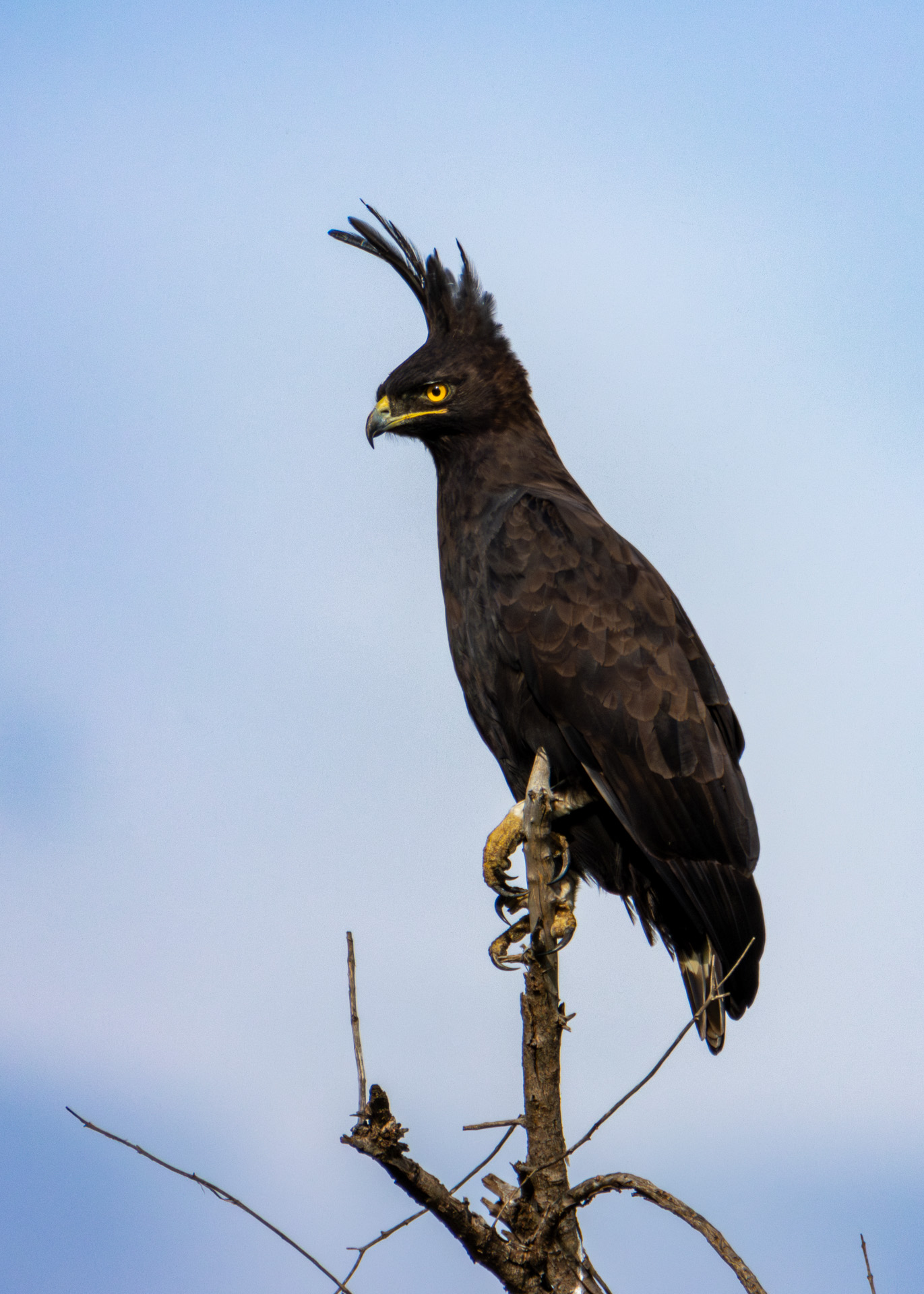
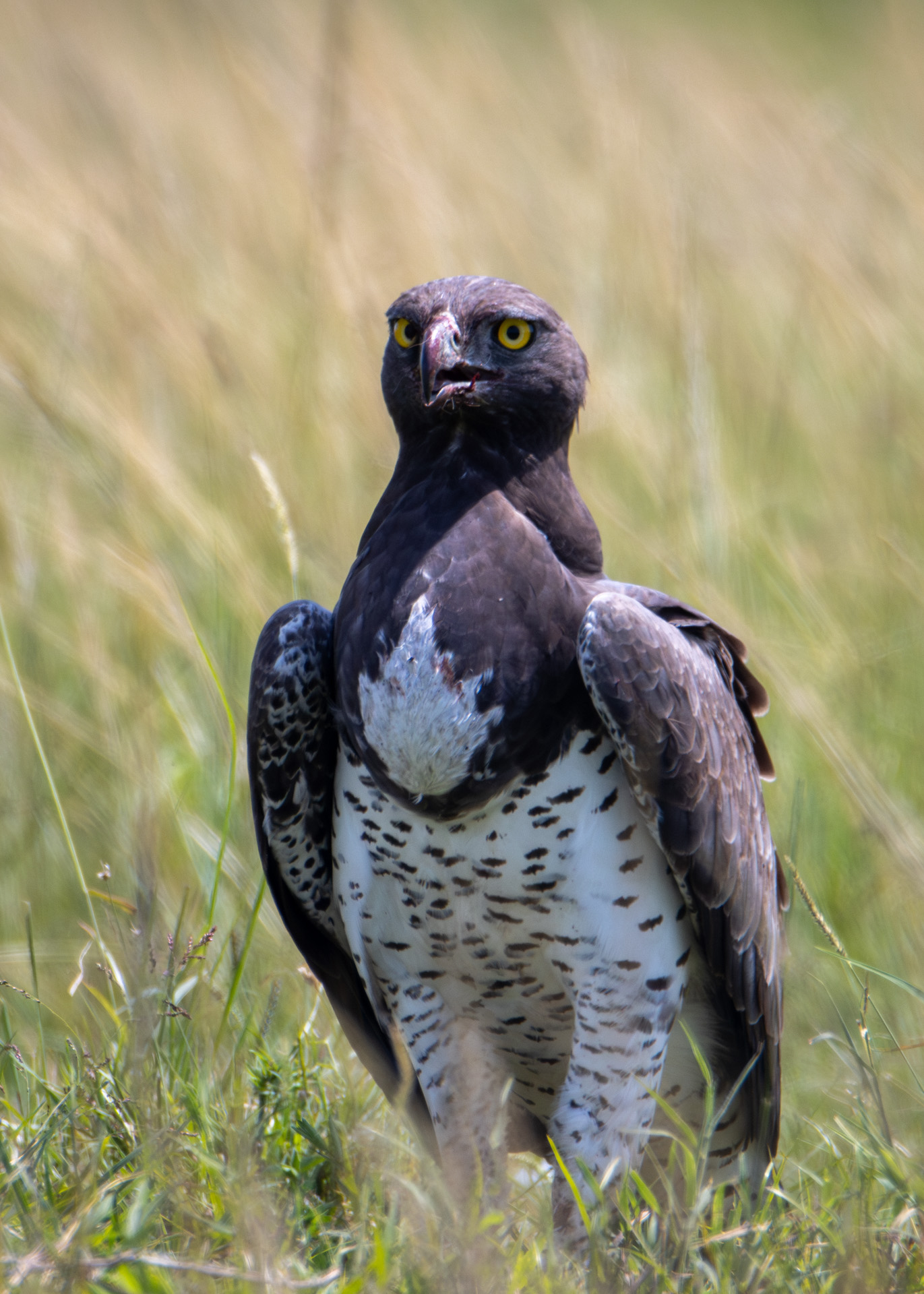
Another personal favourite of mine is the martial eagle. These awe-inspiring 'lions of the skies' dominate with their might and unmistakable beauty. As apex predators, martial eagles are expert hunters. They're equipped with exceptional eyesight, which allows them to spot potential prey from great distances while soaring high above the ground.
One of Angama's guides, Robert, spotted a martial eagle this week with a beak and chest stained in blood. The fresh kill was hidden in the tall grass but it could've been anything from small to medium-sized mammals, birds, and reptiles.
While not quite the size, nor ferocity, of the lion of the skies, one shouldn't judge this book by its cover. A lilac-breasted roller catches himself a big meal of what looks like a baby snake.
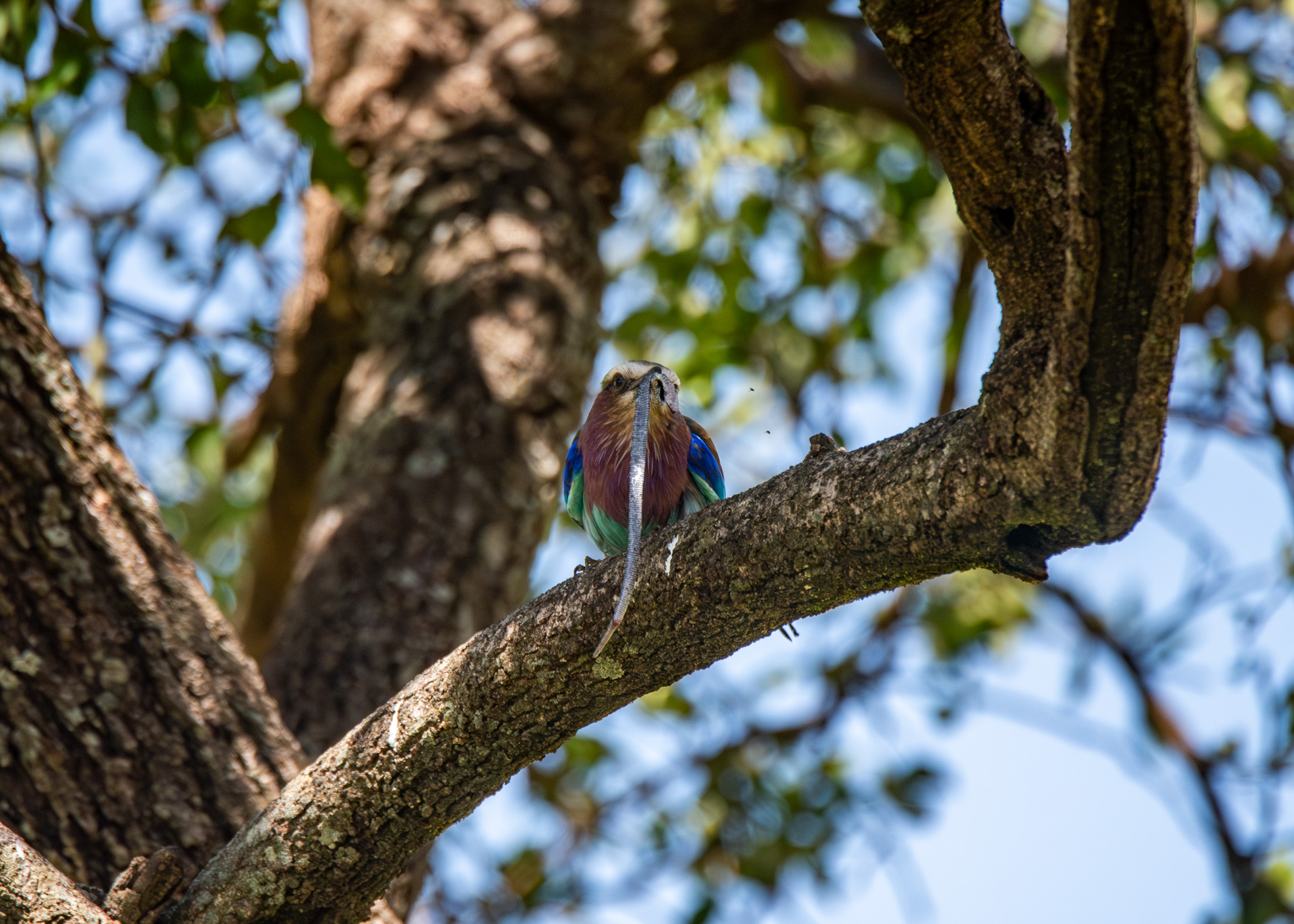
One of the most captivating stories in the Triangle in recent months is of cheetah Risasi and her cubs. From the moment she was pregnant with her first litter and the heart-warming birth of four adorable cubs, we have been avidly following her progress. Despite the unfortunate loss of two cubs to unknown causes, Risasi has displayed unwavering resilience and remarkable maternal instincts as a first-time mother.
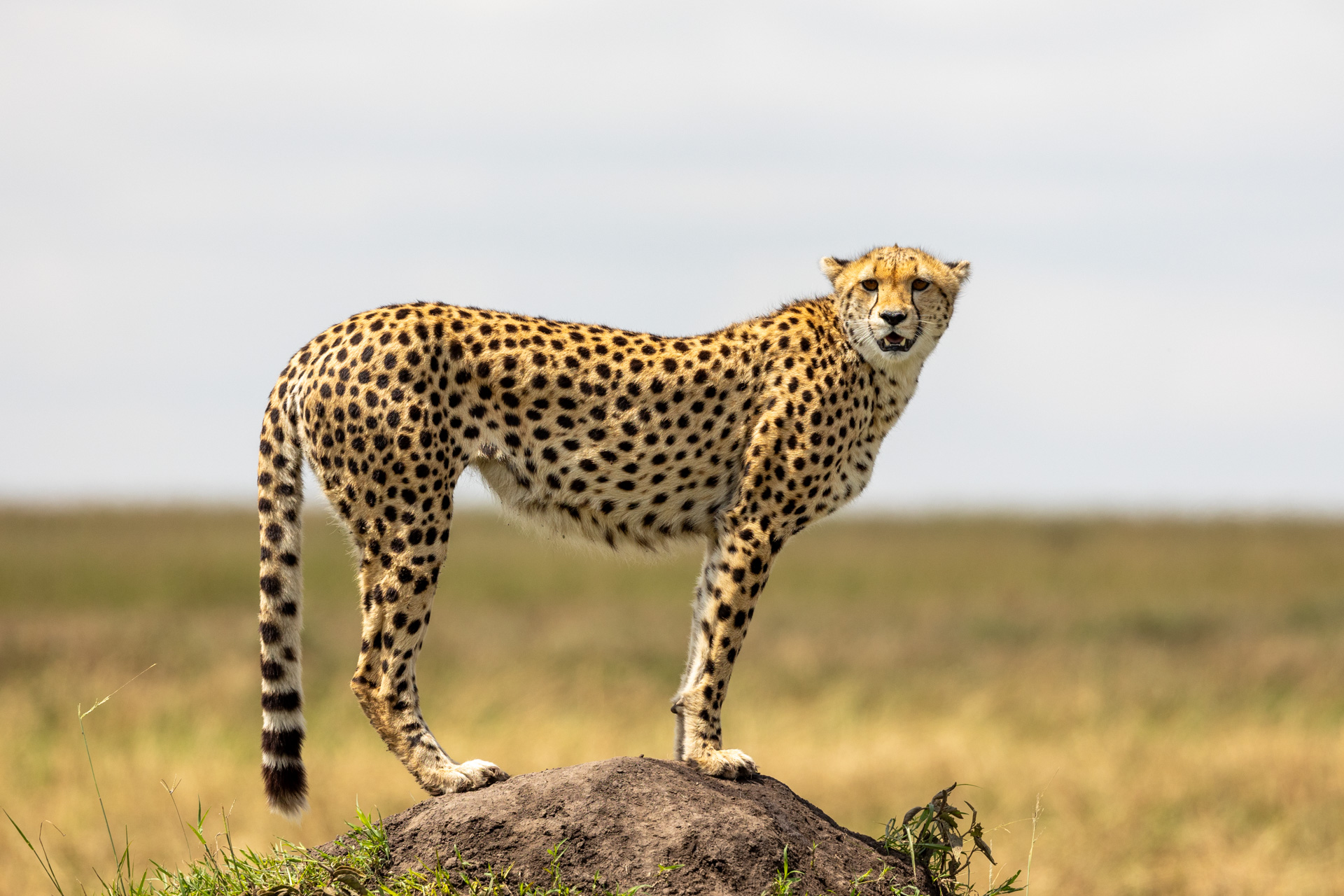
As her cubs continue to grow, we are privileged to witness their development firsthand. They have reached a stage where they are actively learning the art of hunting under the watchful eye of their mother. The sight of them practising their hunting skills is truly charming, displaying a blend of elegance and awkward power.
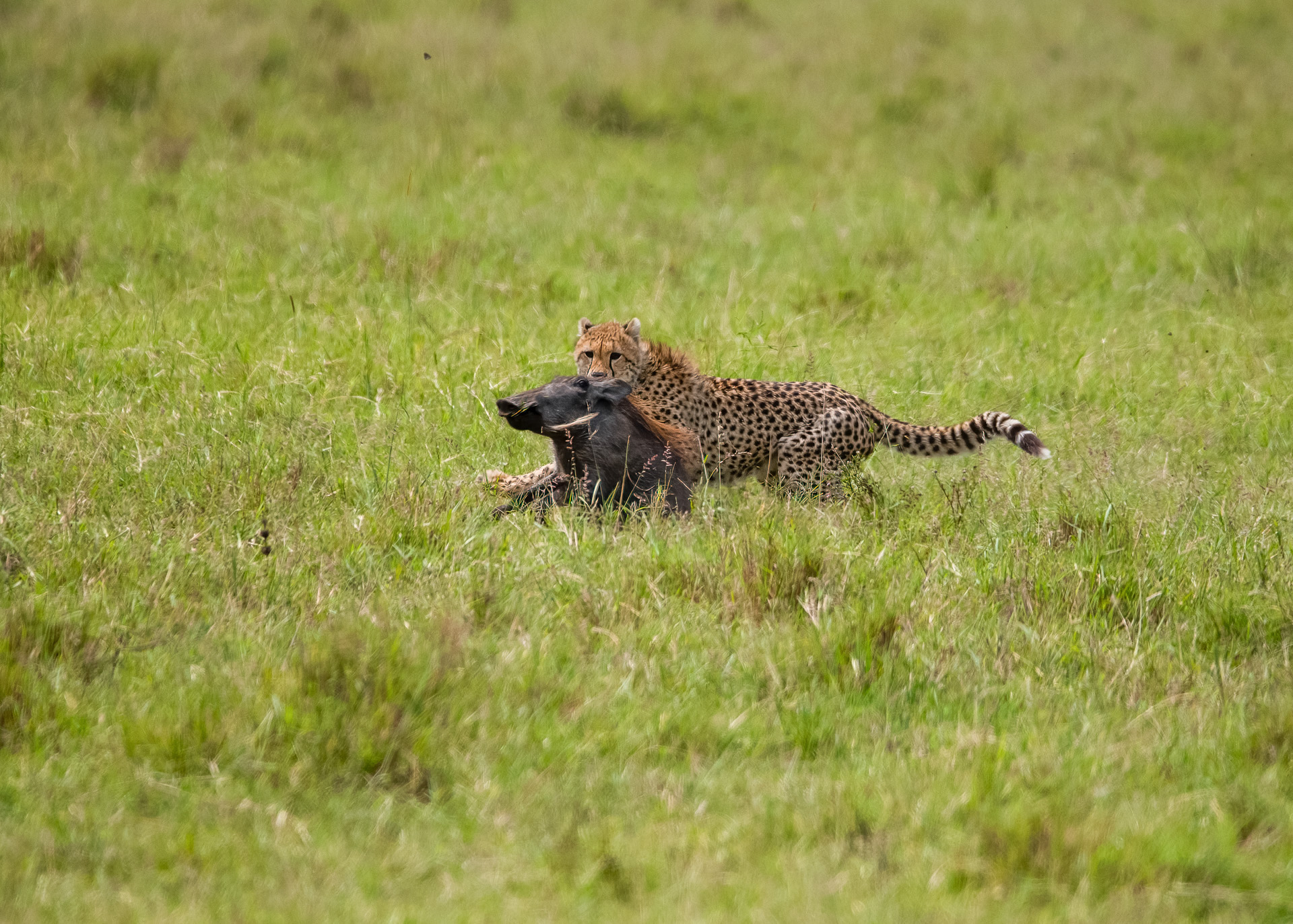
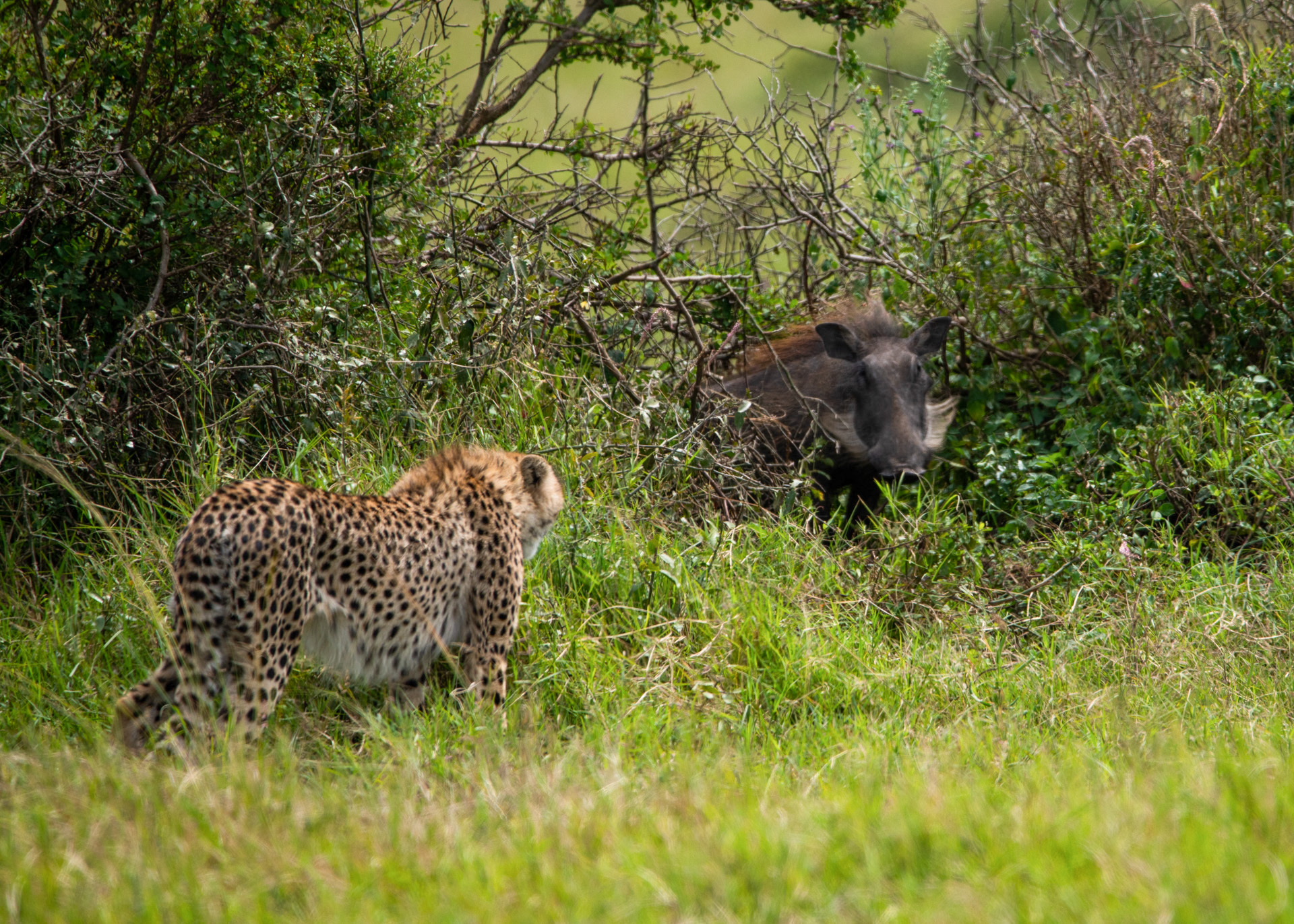
We were enthralled this week as the cubs made their brave attempt to corner a warthog. Although they showcased their determination and budding hunting skills, it was evident that they still have several months of learning ahead before they could successfully make a kill on their own. It is a testament to the patience and guidance provided by Risasi, who remains a pillar of support for her cubs during this crucial stage of their development. We eagerly anticipate the day when these young cubs will blossom into skilled hunters, carrying on the legacy of their remarkable mother.
Shujaa, the renowned male leopard of the Mara, refused to be overshadowed. He made a captivating entrance as he delicately held the head of a Thomson's gazelle, displaying his hunting prowess. As he prepared to vanish into the dense foliage, Alice, a member of Angama's guiding team, managed to capture some quick shots of this majestic leopard.
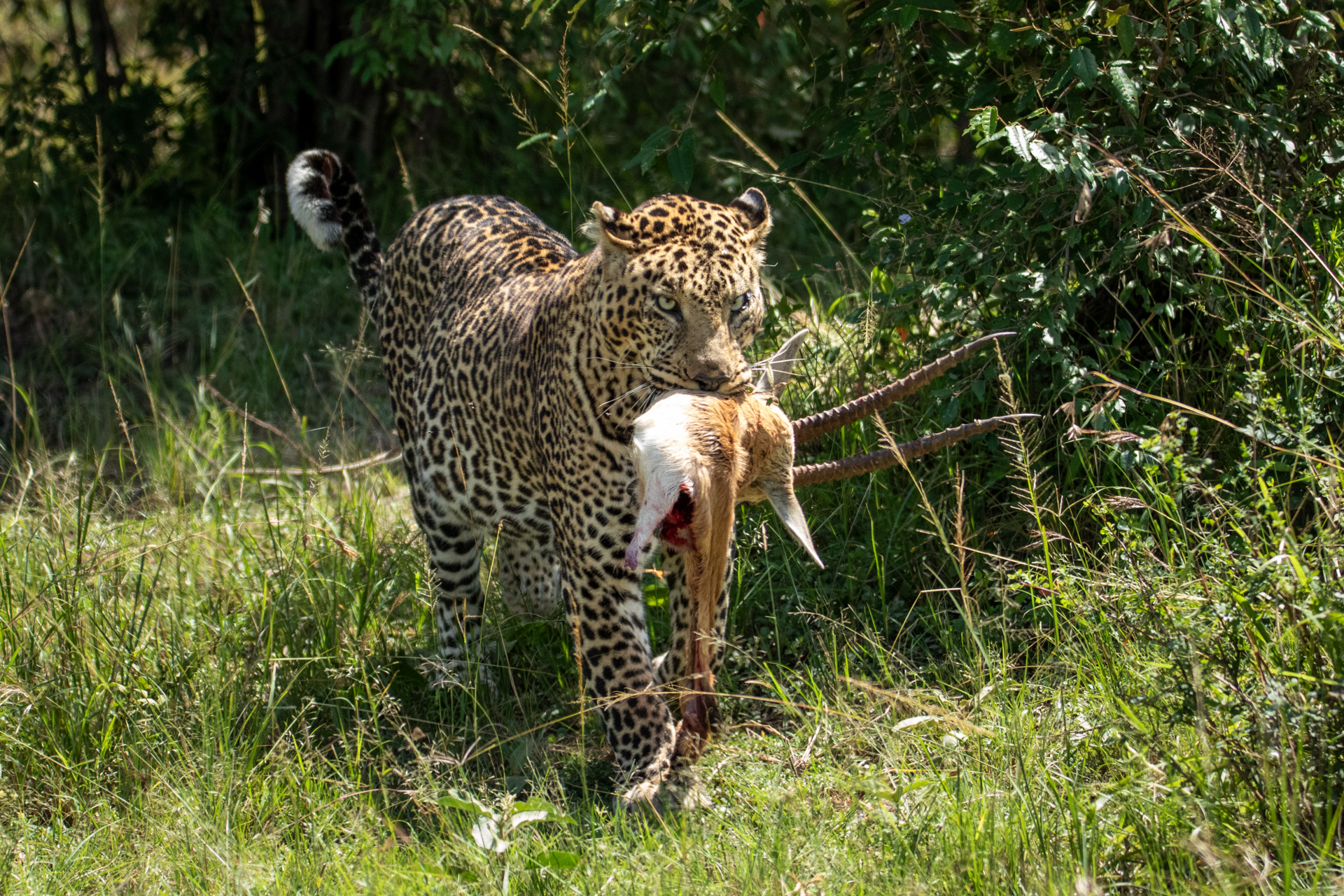
As we wrap up yet another exciting (but very hot) week in the Mara, we caught two of the Big Five in need of a dip. While a buffalo and lion were cooling off in the deep, we witnessed a lapwing chick take its first steps into this wild world and wished it good luck on its new journey.
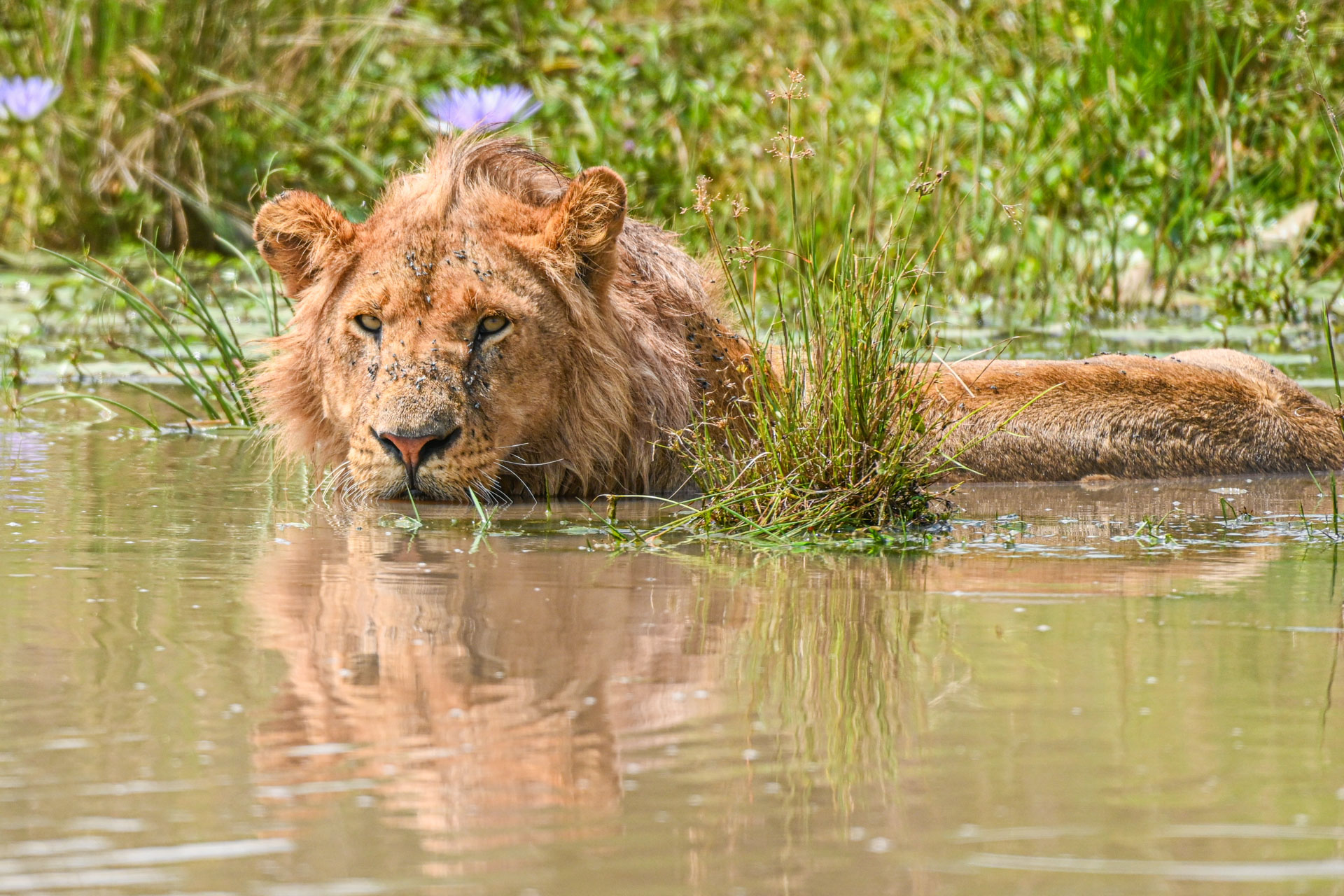
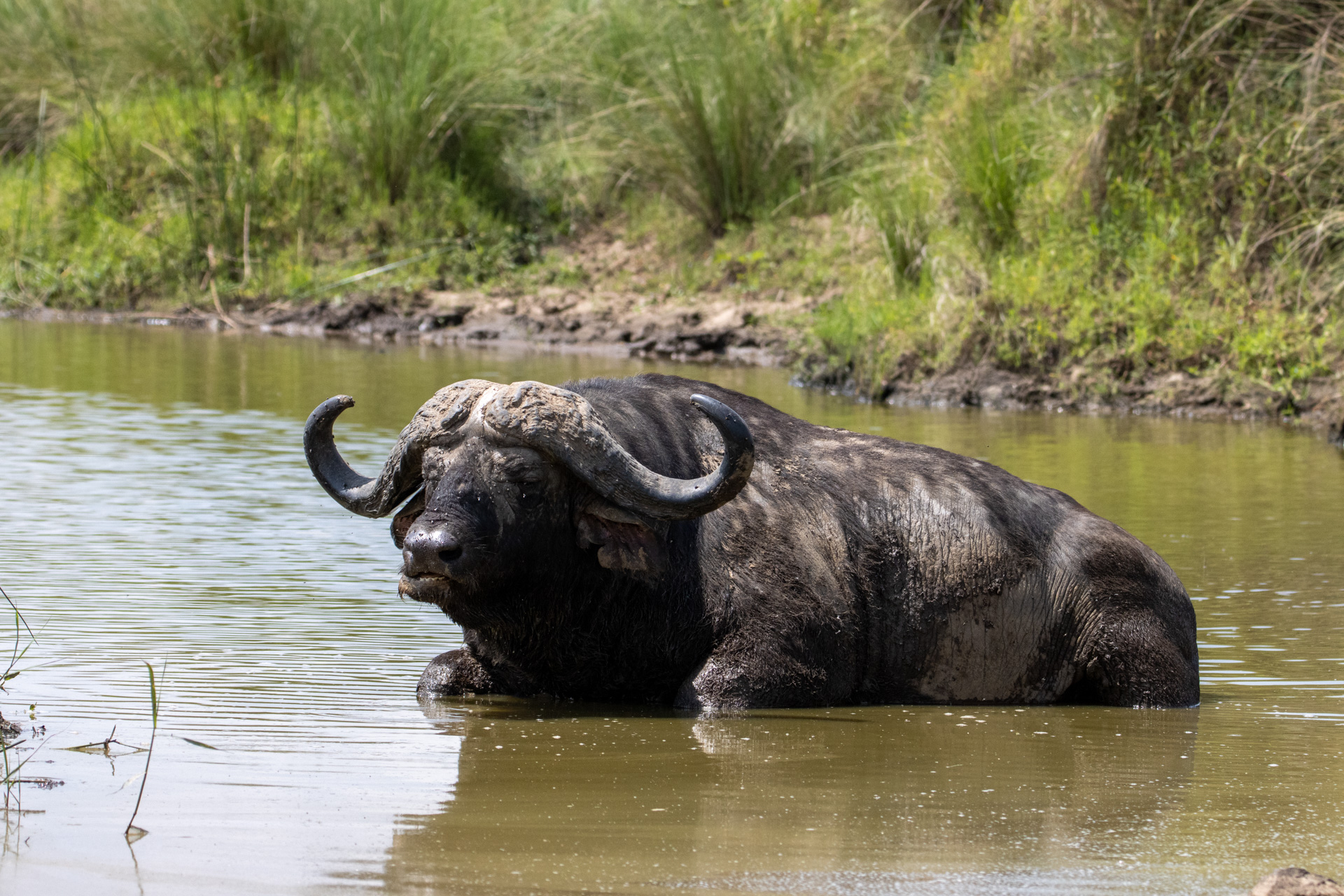
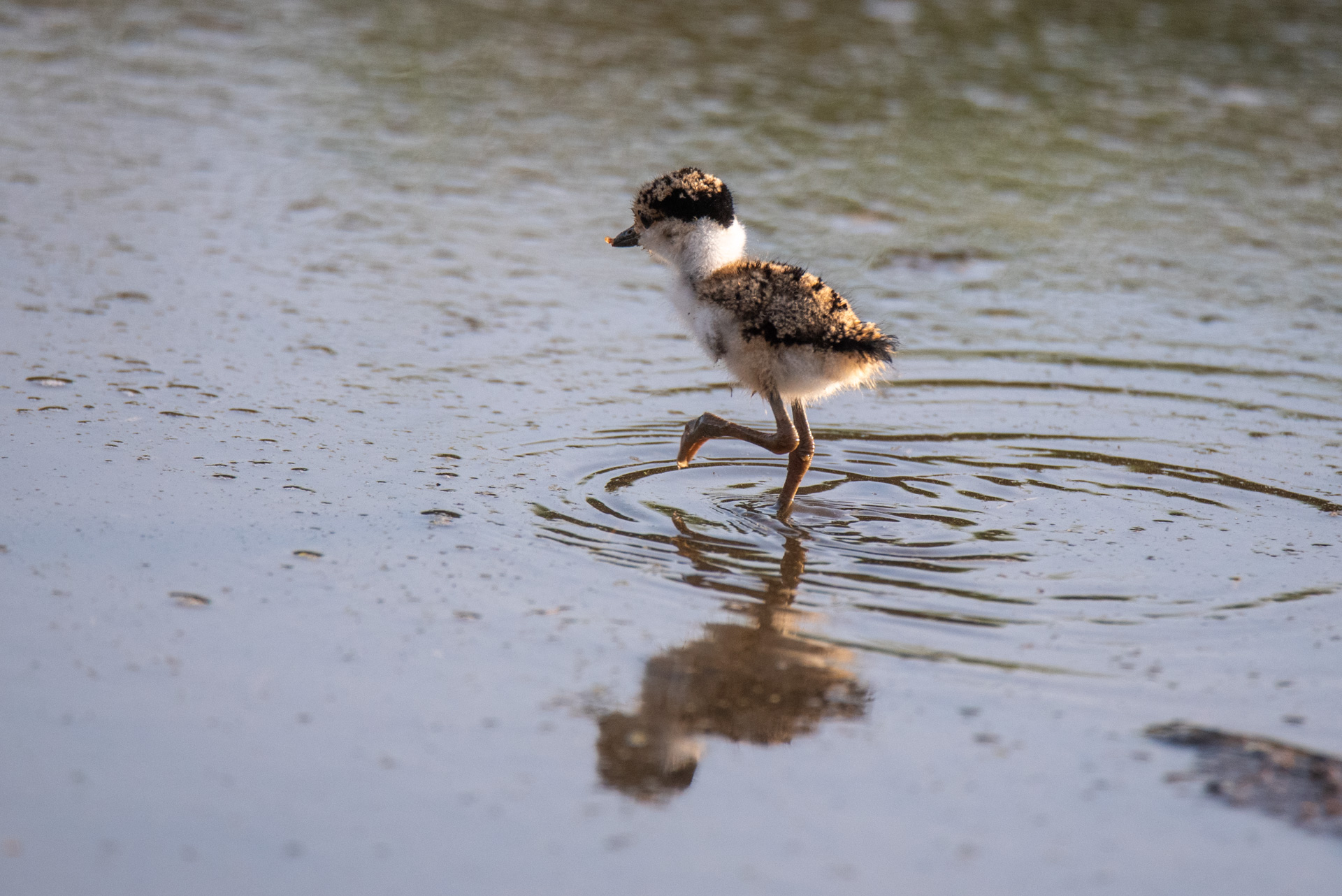
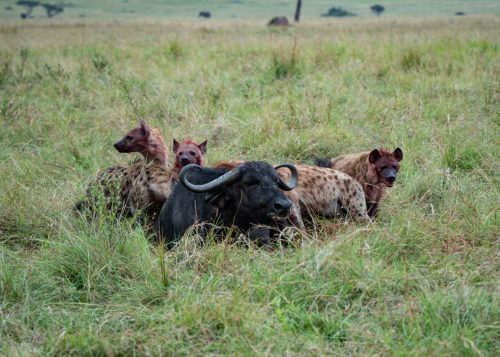
We all know that nature can be cruel sometimes, this was made very clear last year when six hyenas managed to take down a buffalo and start eating it while it was still alive.
Filed under: This Week at Angama
Subscribe for Weekly Stories
Comments (0):
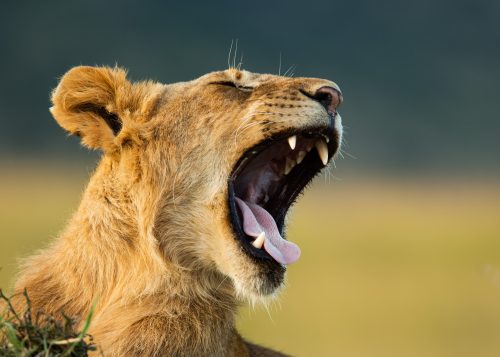
Angama Safari Offers